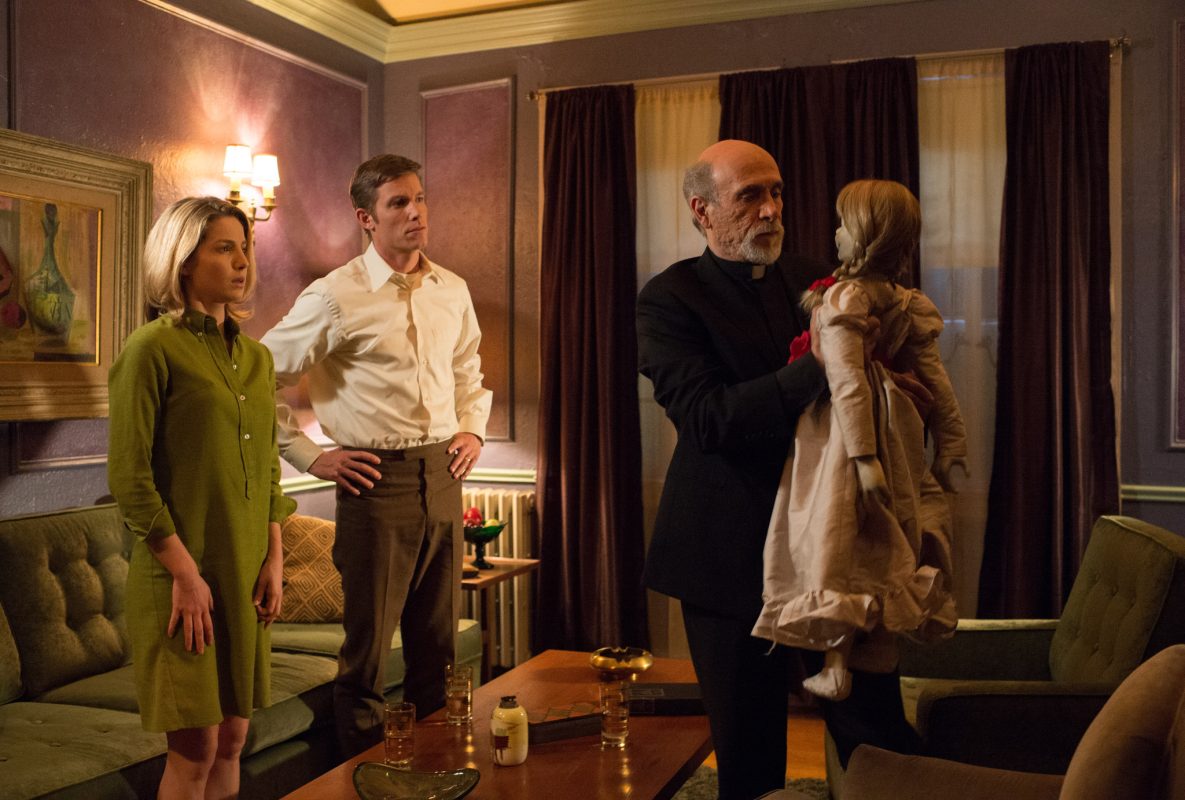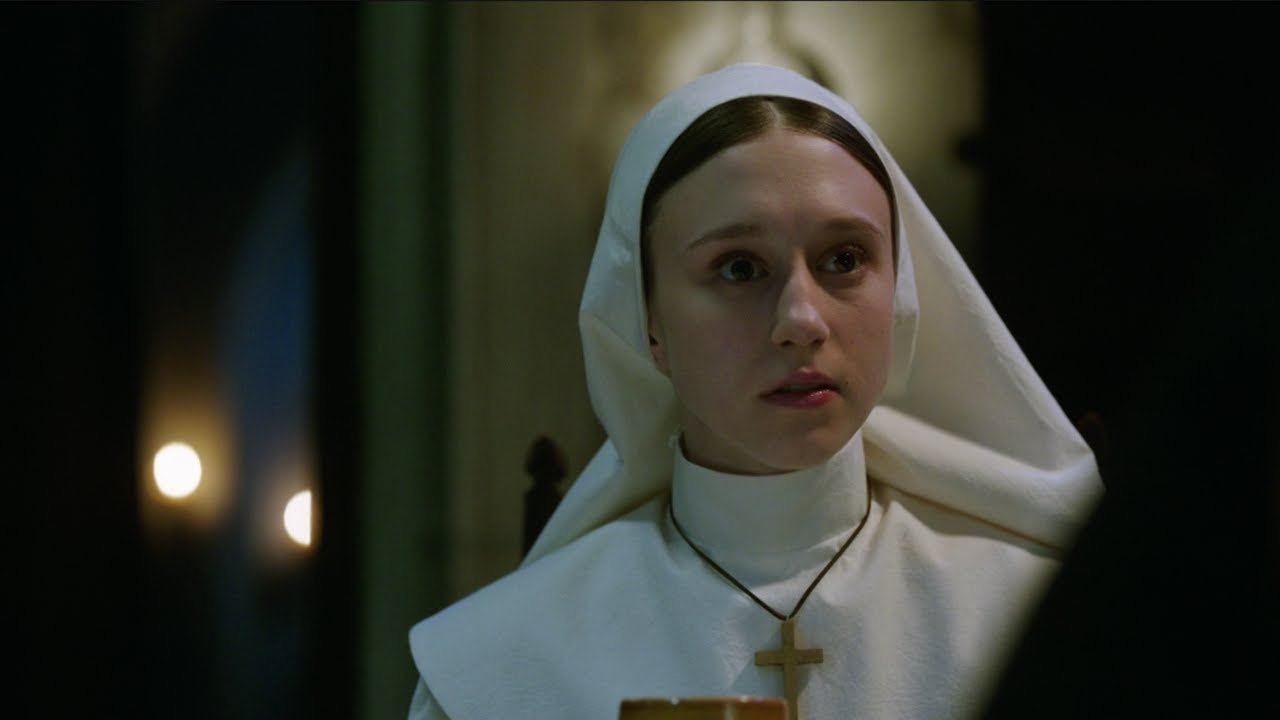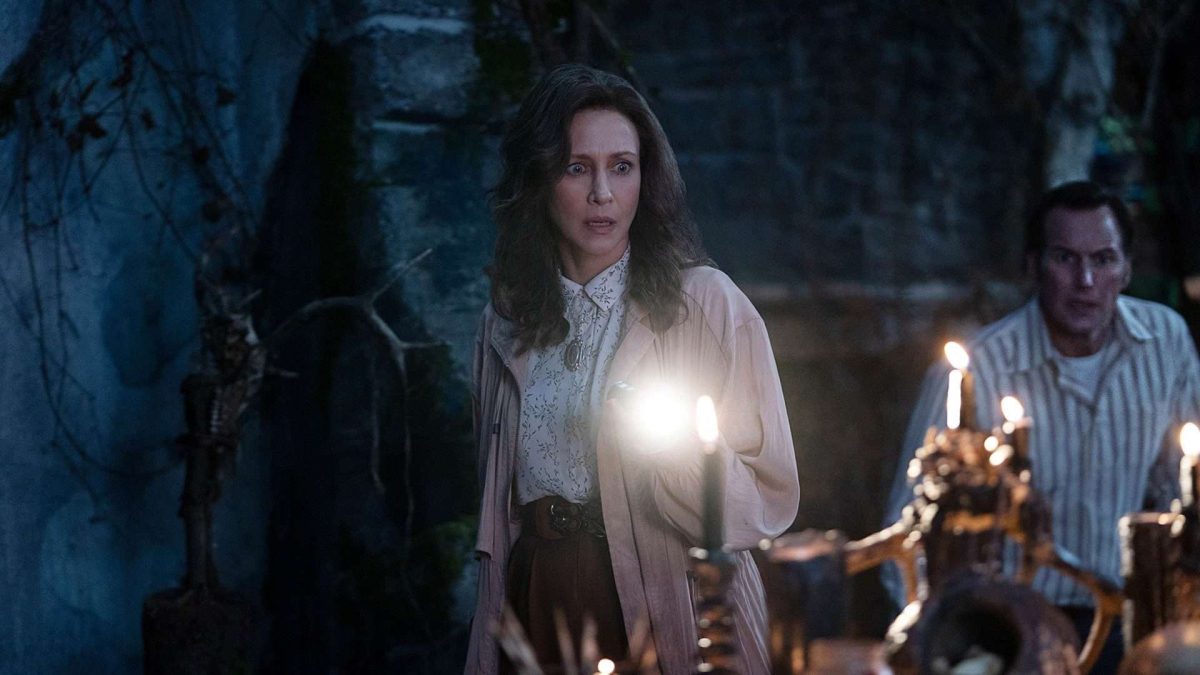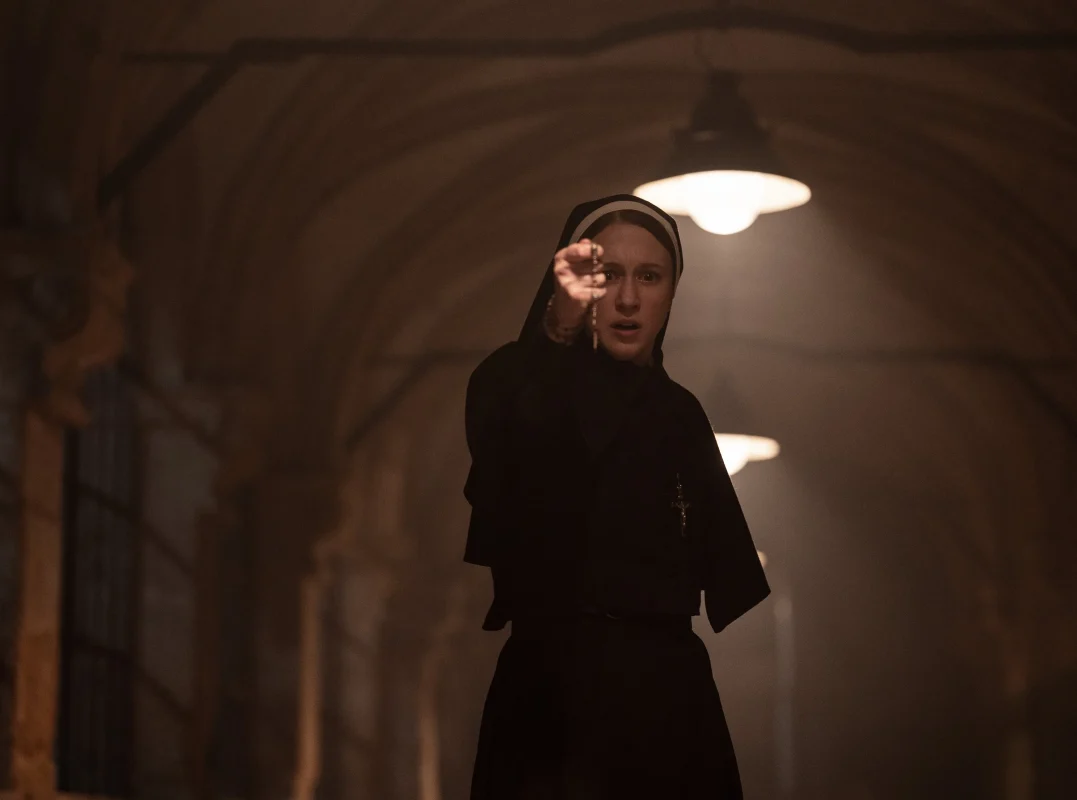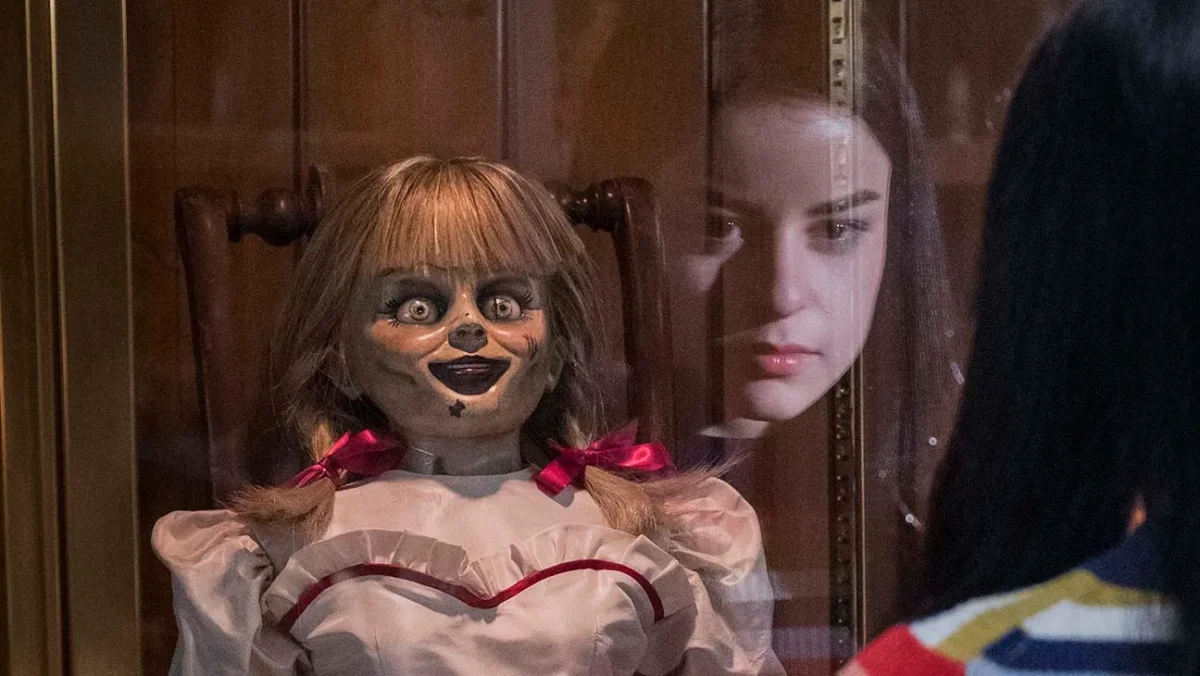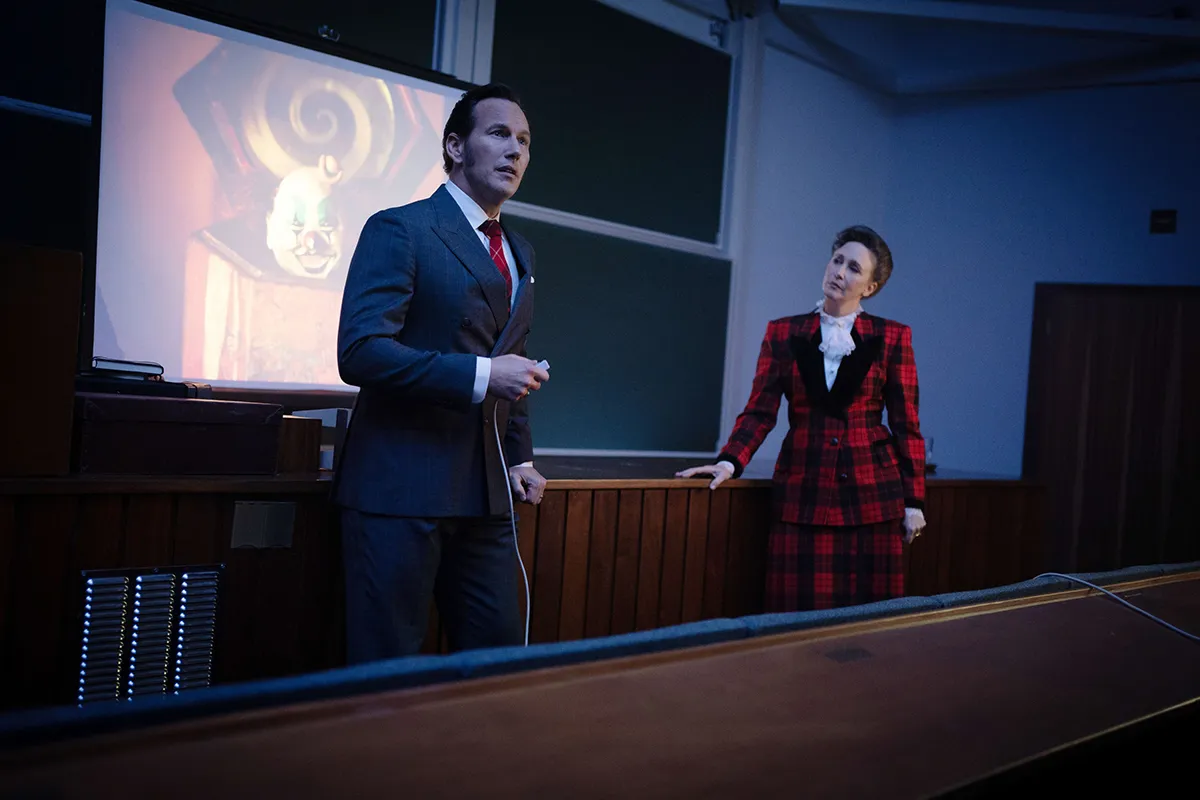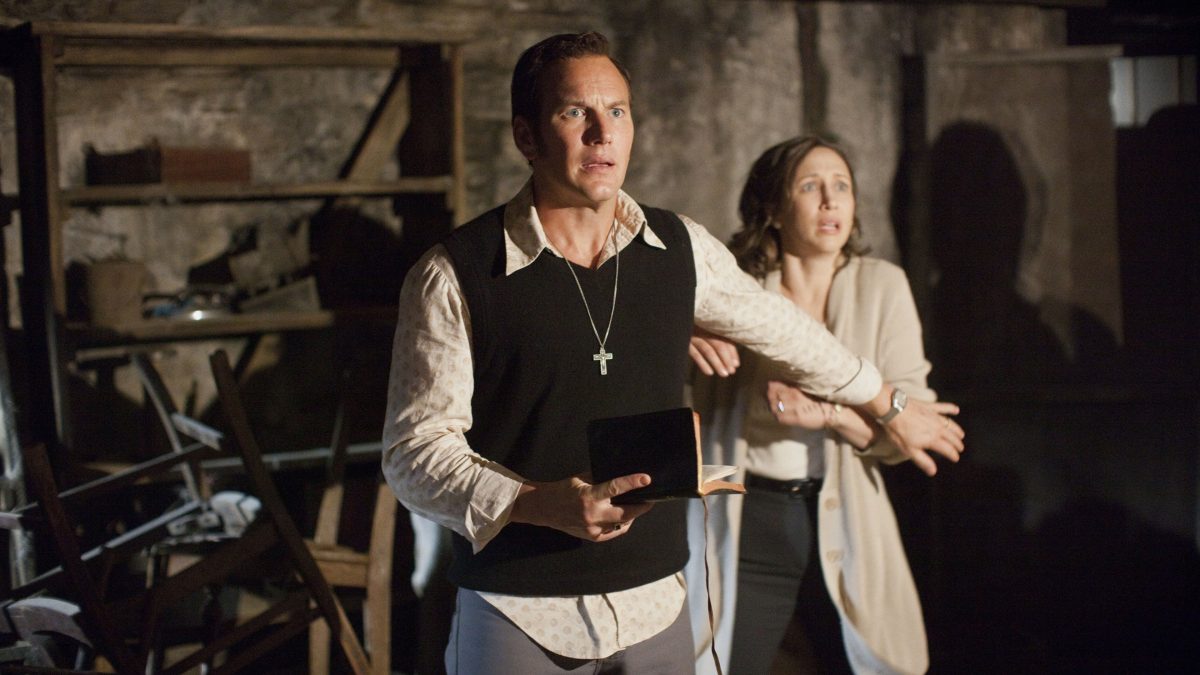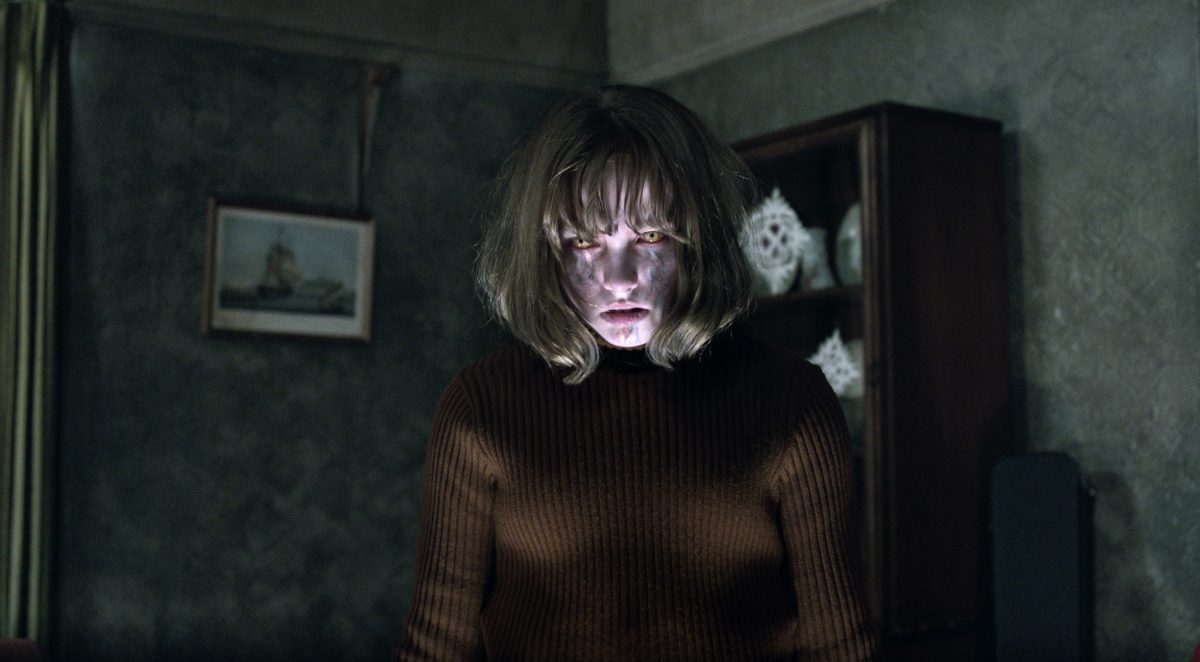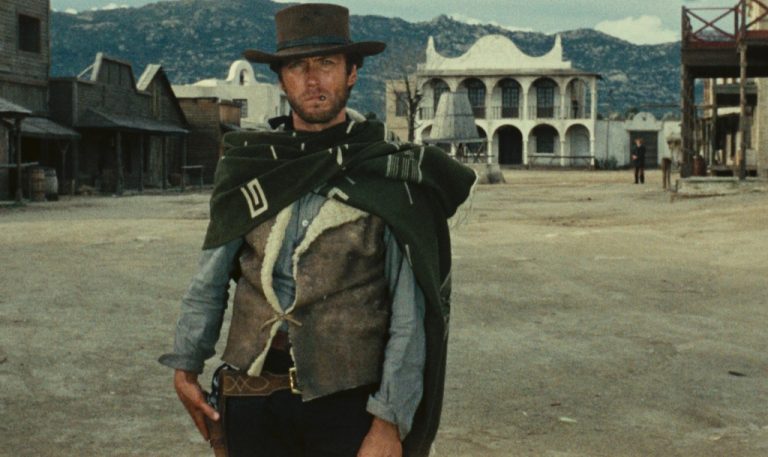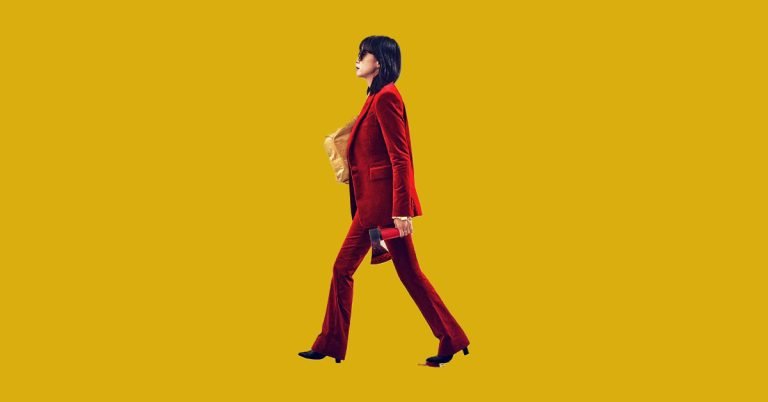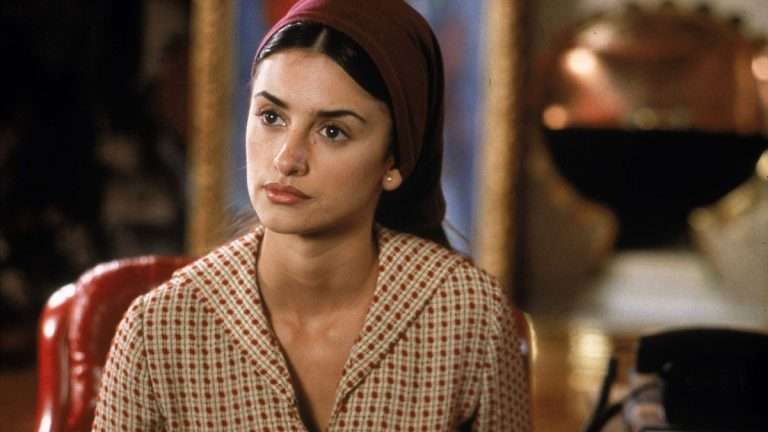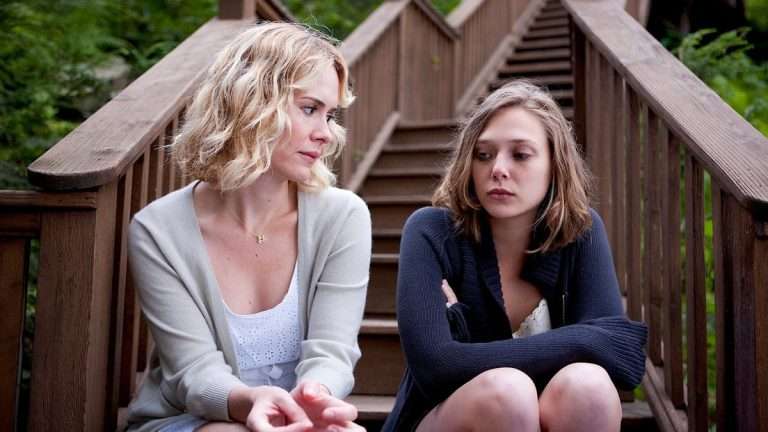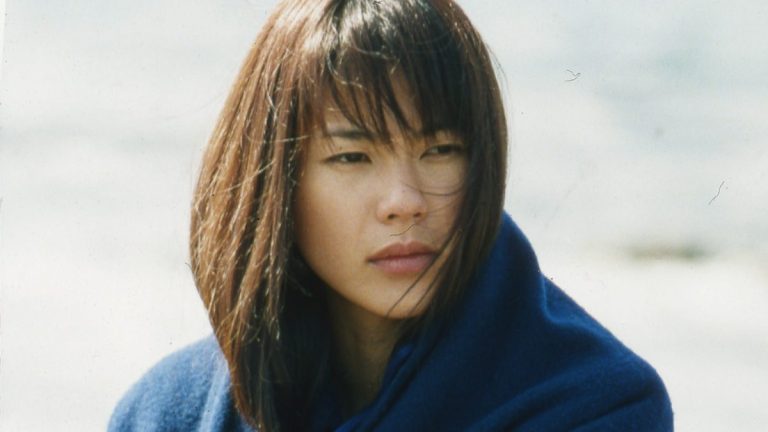The 21st century may have seen the attempted rebirth of iconic horror franchises like “Halloween,” “A Nightmare on Elm Street,” “Friday the 13th,” and “The Texas Chainsaw Massacre,” but the most effective work of serialized terror has been the extended universe of “The Conjuring.”
Although director James Wan had proven himself a bold new voice in the genre with “Saw,” “The Conjuring” tapped into a fascinating true story and used it as a launching pad to explore various stories of possessions, demons, and hauntings. While Ed (Patrick Wilson) and Lorraine Warren (Vera Farmiga) remain the protagonists of the core series, “The Conjuring” has developed into an interconnected saga, inspiring multiple spinoff projects.
It’s ironic that of all the attempts to replicate the crossover success of the Marvel Cinematic Universe, “The Conjuring” series managed to form a more consistent and coherent vision than DC, “Star Wars,” “Ghostbusters,” and the Monsterverse. Even if the quality isn’t necessarily consistent, “The Conjuring” saga has fleshed out its own timeline, which has offered a superficial (yet entertaining) exploration of unsolved mysteries and historical ambiguities.
With its focus on a core group of characters and their discoveries, the saga has bent to the will of individual filmmakers, who seem to have been given relative freedom to pursue their specific visions. If the worst entries in the series could be described as “forgettable,” its best installments rank among the most influential horror films of the past decade. Here is every installment in “The Conjuring” universe, ranked worst to best.
10. Annabelle (2014)
Of all the installments in the franchise, “Annabelle” stands out as the one true “cash grab” that doesn’t have a reason to exist other than to take advantage of something that succeeded in the first film. The mythology of the Annabelle doll in the first “The Conjuring” film worked because it was part of a larger tapestry of supernatural terror, and served as one of the ghastly threats that the Warrens had to overcome within one of their most important investigations.
“Annabelle” is relatively devoid of this context, as the information it provides about the background of the enigmatic doll doesn’t add anything substantial to the mythology. However, the worst sin that “Annabelle” commits is that it is deathly boring, and often feels like a low-rent imitation of Wan’s style.
Although setting a horror story within the backdrop of the Charles Manson murders had a ton of potential, “Annabelle” simplifies any interesting questions regarding cult indoctrination and satanic panic. It’s a relatively uneventful film that uses prolonged sequences with occasional jump scares to pad out the running time, with many key scenes feeling largely indistinguishable from one another.
When considering how sensitive and focused the prior film was in carving an interesting family dynamic, it’s disappointing that “Annabelle” has nothing to say about the plights of parenthood, as there is nothing about the relationship between Mia (Annabelle Wallis) and John Form (Ward Horton) that is remotely interesting. Outside of a strong performance by Wallis, “Annabelle” is only worthwhile for true competitionists of the franchise.
9. The Curse of La Llarona (2019)
It’s up for debate whether “The Curse of La Llorona” should even be considered to be part of “The Conjuring” mythology, as its only connection to the broader universe is an appearance by Tony Amendola as Father Perez.
While some have argued that is isn’t a “true” installment in the series, “The Curse of La Llarona” was still produced by Wan’s production company, Atomic Monster, and served as the directorial debut of Michael Chaves, who would go on to helm “The Conuring: The Devil Made Me Do It,” “The Nun II,” and “The Conjuring: Last Rites.” That being said, it’s understandable why fans of “The Conjuring” would be so keen to dismiss it, as there’s absolutely nothing about “The Curse of La Llorona” that is remotely memorable.
The only thing that “The Curse of La Llorona” has in its favor, and what makes it slightly superior to the first “Annabelle” film, is that it takes the franchise in a different direction by focusing on a Latin American myth and how it came to haunt a Hispanic family. While there are a few creative visuals utilized, “The Curse of La Llorona” still feels like it imitates the family possession concept of “The Conjuring,” but lacks any of the specificity and patience that made Wan’s approach more novel.
There’s seemingly no internal logic, as characters will recover from trauma when ghastly images appear. While Linda Cardellini does her best to give a compelling maternal performance, her strong efforts aren’t enough to make the film any more watchable.
8. The Nun (2018)
After “Annabelle” turned into a successful franchise of its own, Warner Bros. tested its luck once more with “The Nun,” another prequel that centered on the sinister demon Valak, who had been a standout in “The Conjuring 2.” It’s to the film’s credit that “The Nun” doesn’t feel derivative of “The Conjuring,” as it instead chooses to set its story within a Roman Catholic monastery in 1952. Replacing the earnest marital dynamic of the Warrens is a compelling master-student relationship between Father Burke (Demián Bichir) and the novitiate Sister Irene (Taissa Farmiga), who are dispatched to investigate a bizarre series of murders that seem to have supernatural causes.
“The Nun” is sadly held back by its reliance on jump scares and a lack of internal logic, as the film often makes narrative choices that exist to surprise the audience, but lack any substantial explanation. Nonetheless, its embrace of the Gothic setting, as well as a genuinely creepy atmosphere, is a nice change of pace for a franchise that works well when it digs into religious paranoia.
Even if it offers a fairly generic message about faith being rewarded, there are enough surprisingly graphic moments in “The Nun” for it to be engaging over the course of its mercifully short 96-minute running time. There’s nothing about “The Nun” that will stand the test of time in the same way that “The Conjuring” films have, but it’s a modestly entertaining exercise in style that is easy to forget entirely by the time that the credits wrap up.
7. The Conjuring: The Devil Made Me Do It (2021)
The third entry in the main series may have brought back the Warrens for a third adventure, but “The Conjuring: The Devil Made Me Do It” lost Wan as a director. He had instead chosen to helm the critically underrated “Malignant,” which was almost instantly heralded as a cult classic. Wan had clearly excelled in centering each story around one family and the haunted house that they inhabited, but director Michael Chaves (who also helmed “The Curse of La Llorona,” “The Nun II,” and “The Conjuring: Last Rites”) instead chose to transform the series into an investigative mystery.
It was an interesting way to show the newfound authority that the Warrens held, but “The Conjuring: The Devil Made Me Do It” suffers from victims, suspects, and bystanders who are simply not interesting. While the Warrens’ ability to connect with the other characters made up the emotional backbone of the first two films, “The Conjuring: The Devil Made Me Do It” rushes between supporting cast members to produce an increasingly forgettable series of scares.
Wan’s absence is most clearly felt in the execution of scares, as “The Conjuring: The Devil Made Me Do It” rarely lingers in a single sequence long enough for there to be any significant suspense. Nonetheless, Wilson and Farmiga are such compelling screen presences that their presence is enough to make “The Conjuring: The Devil Made Me Do It” an emotionally involving experience, which even manages to hit some surprising emotional moments as it reflects on the legacy of its predecessors.
6. The Nun II (2023)
“The Nun II” is a sequel that often feels like a remake, as it essentially reworks the narrative of its predecessor, with Sister Irene now serving as the mentor to the younger Sister Debra (Storm Reid). While “The Nun” spinoff series has yet to move past Valak as its primary antagonist, the second installment at least takes a chance in setting the story in a slightly larger boarding school, in which the protagonists are tasked with protecting the next generation of the faith from corruption by supernatural forces.
The increased budget is notable in “The Nun II,” as the film has the time to explore the reclusive, restrained culture within the monastery, which inadvertently makes its inhabitants vulnerable to subjugation.
Farmiga gives another strong performance and appropriately adjusts to playing a character who has been made wiser by her experience, even if she is still burdened by trauma. Nonetheless, its ambition to offer more than a distraction within the borders of “The Conjuring” universe results in an overcomplicated narrative that often writes itself into corners with less-than-satisfying conclusions.
Even if it’s a significant change-of-pace from “Annabelle,” “The Nun II” isn’t offering anything new within the religious horror subgenre that Ken Russell or William Friedkin hadn’t already perfected. It’s less than the sum of its parts, but “The Nun II” does signify that Chaves has found his voice as a filmmaker and is willing to develop an in-house style that honors the template Wan had already established. If nothing else, it left the door open for an even stronger third entry in the series to potentially take even greater risks.
More in the Horror Space: The 10 Best Horror Movies of the decade (2010s)
5. Annabelle Comes Home (2019)
After “Annabelle: Creation” proved that the spinoff series had potential as an anthology saga, “Annabelle Comes Home” became a strange “legacy sequel” of sorts that tied the mystery of the doll back into the Warren family. Although Wilson and Farmiga have notable cameos and actually have more to do than what they were given in “The Conjuring: The Devil Made Me Do It,” “Annabelle Comes Home” became an old-fashioned teen supernatural frightfest in the vein of “Christine” or “Fright Night.” It’s by far the most traditionally entertaining entry in the entire universe, and serves as the only way for the “Annabelle” series to justify its existence.
While “The Conjuring” films require a more grounded family story with significant emotional consequences, “Annabelle Comes Home” embraced a sillier side to the unusual premise and benefited from its more contemporary setting. “Annabelle Comes Home” marked the directorial debut of Gary Dauberman, a long-time writer within the series who would also go on to direct the HBO Max original “Salem’s Lot.”
While the film does struggle to be genuinely scary, as there are few moments of visceral imagery that are memorable, “Annabelle Comes Home” benefits from a zippy pace and a willingness to add humor. Mckenna Grace is a charismatic young lead who offers a different type of protagonist for the series, and there’s enough internal logic to make the playful third act an absolute blast to watch. When considering where the first “Annabelle” started off, it’s remarkable that “Annabelle Comes Home” is as good as it is.
4. Annabelle: Creation (2017)
“Annabelle: Creation” is by far the most surprisingly great entry in the entire franchise, as the failures of its predecessor were enough to convince Warner Bros. and Atomic Monster to take a completely different direction by plunging deeper into the past than the series had ever gone before.
Set in the early 1950s, “Annabelle: Creation” explores the origin of the titular doll and how the tragic death of a child placed a curse on the couple, Samuel (Anthony LaPaglia) and Esther Mullins (Miranda Otto), even when they attempted to welcome new orphans into their lives. By removing the series from technological trappings or outside interference, “Annabelle: Creation” became an aesthetically dynamic, astute examination of the splintering American family, and managed to say something profound about the parasitic impact of grief.
Stepping into the director’s chair was David F. Sandberg, whose directorial debut, “Lights Out,” had offered a similarly inventive mix of dark family history and entertaining set pieces. Sandberg finds a way to develop surprisingly involving characters who generate empathy, but never attempts to dial up the “prestige horror” perspective in a manner that would feel pretentious.
This is still a haunted house movie of sorts, and one that isn’t opposed to showing children in peril. “Annabelle: Creation” proved that “The Conjuring” franchise could serve as a platform for emerging horror filmmakers to put their own spin on a malleable, interconnected universe, but it’s also a highly entertaining frightfest when viewed as a standalone entity. Hopefully, it will not be Sandberg’s last addition to the series.
3. The Conjuring: Last Rites (2025)
Chaves showed a surprising improvement as a filmmaker with “The Conjuring: Last Rites,” the presumably final chapter in the core story of the Warrens, which harkened back to the more grounded aesthetics of the first two entries in the series. Rather than trying to develop an even more ridiculous and powerful villain, the fourth film in the core saga gets personal, as it shows an aging Ed and Lorraine who have considered giving up their careers as paranormal researchers.
What draws them back into the fold isn’t just a family in need, but the whims of their daughter, Judy (Mia Tomlinson). Having inherited her parents’ desire to save people, Judy becomes an active part of the narrative, putting Ed and Lorraine in a vulnerable position, unlike their previous exploits. It’s set up in the riveting opening scene that a young Ed and Lorraine (who are thankfully played by real actors, and not de-aged CGI deepfakes) almost lost their daughter, and have considered every moment since to be a miracle.
The religious undertones of “The Conjuring: Last Rites” are less pronounced, as both the Warrens’ storyline and the family they’ve come to assist face a crisis where parents must choose the best way to support their children. Although this means that the Warrens must learn to let go, it also means welcoming Judy’s boyfriend, Tony, played by Ben Hardy in a very charismatic performance. By engaging with the characters’ legacy in real time, “The Conjuring: Last Rites” ends the series with a wholesome emotional climax.
2. The Conjuring (2013)
Although the horror genre wasn’t necessarily absent from American cinema in 2013, it had faced a decline from the spotlight, as it became easier to distinguish true arthouse projects from the more generic fare aimed at general audiences. Wan has always been a fascinating filmmaker who has managed to incorporate transgressive ideas into commercial material, and “The Conjuring” is an old-fashioned haunted house story that is completely committed to its period setting.
Produced on a modest budget of $20 million with a relatively mysterious marketing campaign, “The Conjuring” became a different type of horror blockbuster, even if it technically preceded the “prestige horror” trend by a few years. While it brings back the sort of ghostly demons, possessions, and dark mysticism that hadn’t been at the forefront of the genre since the 1970s, Wan succeeded in capturing a dread-inducing atmosphere of paranoia that became more than a series of cheap thrills.
Wilson and Farmiga offered a fascinating perspective as to what real paranormal investigators might act like (even if the notion that the film is “based on a true story” is bogus), but it’s the heartwrenching look at how a malevolent spirit has disrupted the domestic life of a closely-knit family that made the film so engaging. Clever, well-produced, and effective in its most disturbing moments, “The Conjuring” reignited the industry’s obsession with supernatural horror and distinguished Wan as one of the best studio filmmakers of his generation. The fact that “The Conjuring” still inspires knock-offs and retreads speaks to its remarkable lasting power.
1. The Conjuring 2 (2016)
Horror sequels face a similar track record as comedy sequels, as it can be very hard to strike lightning twice without feeling derivative. Even if “The Conjuring” served as a great launching pad to meticulously study the paranormal, its sequel crafted a more creative array of scares and featured a more emotionally gripping family drama.
Although Ed and Lorraine are dispatched to London to investigate a series of terrifying possessions within the home of a kindly couple and their four children, their greatest threat is even more personal. Lorraine has begun to fear for the life of Ed, and her anxieties are elevated as they consider starting their own family. “The Conjuring 2” asks if it’s possible to ever be prepared to raise a family in a world overrun by danger, as both the Warrens and their clients are taken advantage of because of their compassionate nature.
It’s a timeless story that’s carefully threaded into the 1970s era of paranoia, and the sequel plays into the significant difference in socialization between America and England. While the film often feels like an epic, as it runs for a massive 134 minutes, there isn’t a scene wasted. When Wan isn’t terrifying his audience with even the most minor of movements, the observations about cursed families and locational history deepen the film’s understanding of what it truly means to be “freed” from an evil entity. “The Conjuring 2” is both one of the best horror sequels ever made and the apex of Wan’s filmmaking abilities, as it has set a standard for the franchise that it has yet to usurp.

